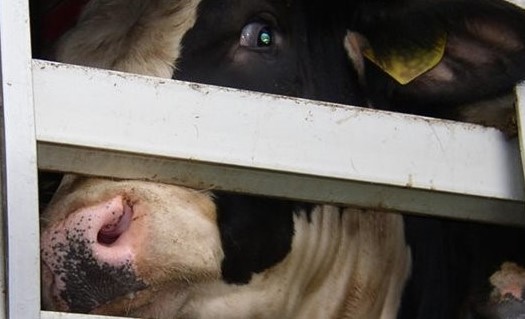Animal welfare organisations protested on Friday against a European Commission decision to allow transport of livestock between member states and to non-EU countries despite the outbreak of the coronavirus.
Compassion in World Farming and over 35 animal welfare NGOs across Europe wrote in an open letter (20 March) to agriculture Ministers and animal transport contact points of all EU member states that the Commission decision disregard the problems imposed on the health and welfare of farm animals being transported, especially those transported between EU and non-EU countries.
An EU regulation prohibits transport to be carried out in a way that is likely to cause undue suffering to the animals involved. In addition, the regulation states that all necessary arrangements should be made in advance to minimise the length of the journey and meet animals' needs during the journey
In their letter, the NGOs raised problems at different borders last week. Vehicles with farm animals are being refused entry to Croatia. There have been long traffic queues at the border between Lithuania and Poland and queues on the German side of the border with Poland leading to waiting times of several hours.
Vehicles with farm animals are also getting caught up in very long queues at the exit point between Bulgaria and Turkey – drivers transporting farm animals have reported that they needed three hours to move 300 m inside the border.
Queues at borders risk stopping medical supplies and health professionals from getting through. It is even less likely that it will be possible to attend to the welfare of animals caught up in these queues.
The animal welfare organization call on the EU to ban the transport of farm animals to non-EU countries, as well as journeys that last over 8 hours.
“The trade in live animals threatens not only the health and well-being of the animals, but it also threatens our health,” said Olga Kikou, Compassion in World Farming’s Head of EU Office.
“The drivers, animal handlers, vets, civil servants and their families can easily get infected. Unlike others who enter and exit the EU, they are not required to be in quarantine. We are putting them and ourselves at risk.”
The European Commission did not reply in time to requests for a response to the letter.
Update:
European Commission President Ursula von der Leyen said on Monday afternoon (23 March) that the measures introduced to slow down the spread of the virus have also slowed down and sometimes paralysed transport.
In a communication today on “Green Lanes", the Commission requested from the member states to designate, without delay, all the relevant internal border-crossing points on the trans-European transport network (TEN-T) as “green lane” border crossings. The communication does not address the issue of animal transports but can speed up all transports.
The crossings should be open to all freight vehicles, whatever goods they are carrying. Crossing the border, including any checks and health screening, should not take more than 15 minutes.
All freight vehicles and drivers should be treated in a non-discriminatory manner, irrespective of the origin, destination, or country of registration of the vehicle, or of the nationality of the driver. Member states should not distinguish between vehicles carrying goods for use in their territory and those merely transiting.
The Brussels Times

